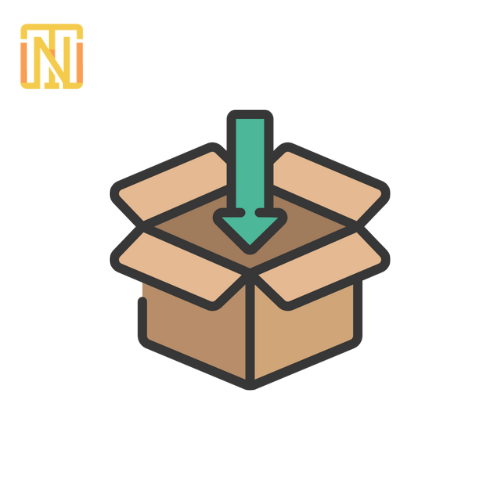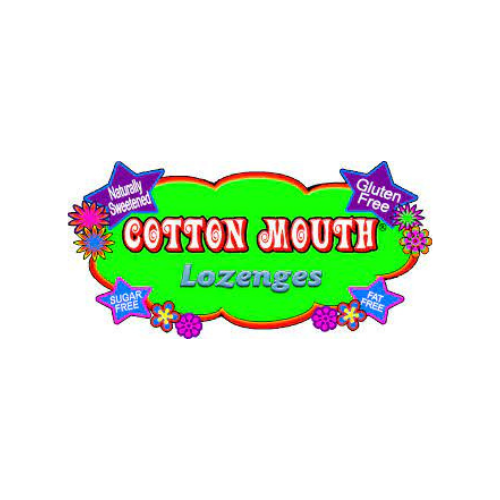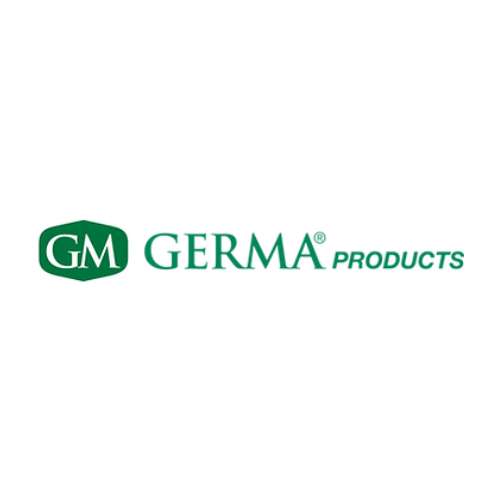
Why Retailers Are Rushing to Buy Immune-Boosting Supplements Wholesale
Have you noticed the supplement aisle at your local store looking fuller lately? There's a reason for that.
Retailers everywhere are stocking up on immune-boosting supplements like never before. And they're not buying small quantities. They're going wholesale.
The shift isn't just a trend. It's a response to what customers want. People are taking their health seriously. They're looking for vitamins, minerals, and natural supplements that support their immune systems. And retailers who understand this are winning big.
But here's the thing. Not all retailers know how to navigate the wholesale supplement market. Some struggle with suppliers. Others worry about regulations. Many don't know where to start.
That's what we're here to talk about today. We'll explore why this rush is happening, what it means for retailers, and how to make smart wholesale buying decisions.
Whether you're a small health store owner or managing inventory for a larger chain, this guide will help you understand the landscape. Let's dive in.
The Surge in Demand for Immune Support
Something changed in recent years. People started paying attention to their immune health like never before.
Walk into any pharmacy or health store. You'll see it immediately. Vitamin C flies off the shelves. Zinc supplements disappear fast. Elderberry products can't stay in stock.
This isn't temporary. Market research shows immune support supplements have become a permanent fixture in people's daily routines. Customers aren't just buying when they feel sick anymore. They're taking preventive measures year-round.
The numbers tell the story:
• Global immune health supplement sales reached $25 billion in 2023
• Growth rates exceed 8% annually
• 73% of adults now take at least one supplement regularly
• Immune support ranks as the top reason for supplement purchases
Smart retailers see this data and act accordingly. They're not waiting for customers to ask. They're stocking up proactively.
Why Wholesale Makes Sense for Retailers
Buying wholesale isn't just about getting better prices. Though that's certainly a big part of it.
When you buy immune supplements wholesale, you're positioning your business for success. Here's why.
First, the margins are better. Much better. Retail markups on supplements can reach 50-100%. But only if you buy smart. Wholesale purchasing gives you room to compete on price while maintaining healthy profits.
Second, you ensure a consistent supply. Nothing frustrates customers more than empty shelves. When their favorite immune booster is out of stock, they'll go elsewhere. And they might not come back.
Third, wholesale buying gives you negotiating power. Suppliers take you seriously when you order in bulk. You can request specific products. You might get exclusive deals. Some suppliers even offer private labeling opportunities.
But here's what many retailers miss. Wholesale buying also helps you build relationships. Good suppliers become partners. They alert you to new products. They share market insights. They help you stay ahead of trends.
Popular Immune-Boosting Supplements in High Demand
Not all supplements are created equal. Some sell faster than others. Knowing which ones to stock can make or break your supplement section.
Let's look at the heavy hitters.
Vitamin C remains the king. Customers know it. They trust it. They buy it repeatedly. Stock multiple forms - tablets, gummies, powders, and effervescent options. Different customers prefer different delivery methods.
Vitamin D has surged in popularity. Research linking it to immune function has driven demand through the roof. Focus on D3 forms, as they're more bioavailable.
Zinc supplements are an essential inventory. Lozenges are particularly popular during the cold season. But don't forget about year-round capsule and tablet forms.
Elderberry products have exploded. Syrups, gummies, and capsules all sell well. Customers love the natural aspect. They feel good about plant-based immune support.
Probiotics deserve special mention. The gut-immune connection has captured public attention. Stock diverse strains and CFU counts. Different customers have different needs.
Here's what else is trending:
• Mushroom-based supplements (reishi, turkey tail, cordyceps)
• Echinacea preparations
• Vitamin and mineral combinations
• Adaptogenic herbs like ashwagandha
• Quercetin and other flavonoids
Remember, variety matters. Some customers want single ingredients. Others prefer comprehensive formulas. Stock both.
Benefits of Buying Wholesale
Let's talk real benefits. Not theoretical advantages. Actual ways wholesale buying improves your business.
Cost savings hit your bottom line immediately. Buying a bottle for $5 and selling it for $15 beats buying for $10 and selling it for $15 every time. Those dollars add up fast.
Inventory control becomes manageable. You're not constantly reordering. You're not paying repeated shipping fees. You have stock when customers need it.
Customer satisfaction soars. Nothing builds loyalty like consistency. When customers know you'll have their supplements, they keep coming back. They tell friends. They leave positive reviews.
Competitive pricing becomes possible. With better margins, you can run promotions. You can match online prices. You can offer loyalty discounts. All while maintaining profitability.
But here's a benefit many overlook. Knowledge and expertise. Good wholesale suppliers educate their retailers. They provide product information. They share selling tips. They help you become the expert your customers need.
Challenges Retailers Face
Let's be honest. Wholesale supplement buying isn't always smooth sailing. Challenges exist. Knowing them helps you prepare.
Regulatory compliance tops the list. Supplements face FDA oversight. Claims must be careful. Labels must be accurate. If you're considering [Amazon Restricted Categories: Your Guide to Getting Ungated], supplements often require additional approval steps.
Storage requirements matter more than you might think. Many supplements need climate control. Some require dark storage. Others have shorter shelf lives than you'd expect. Plan accordingly.
Initial investment can feel daunting. Wholesale means buying in bulk. That ties up capital. For smaller retailers, this can strain cash flow. Start with fast-moving products. Build from there.
Market saturation is real in some areas. Every store seems to carry supplements now. Standing out requires strategy. Maybe it's selection. Maybe it's expertise. Maybe it's the price. Find your edge.
Quality concerns keep smart retailers up at night. Not all suppliers are equal. Some cut corners. Others make grand claims. Verify everything. Check certifications. Request third-party testing results.
How to Choose the Right Wholesale Supplier
Picking a supplier is like choosing a business partner. Because that's essentially what they become.
Start with reputation. How long have they been in business? What do other retailers say? Online reviews help, but direct references are better.
Quality standards are non-negotiable. Look for:
• GMP (Good Manufacturing Practice) certification
• Third-party testing protocols
• Clear ingredient sourcing
• Transparent manufacturing processes
• Proper licensing and registration
Product range matters too. Can they supply everything you need? Or will you need multiple suppliers? Single-source suppliers simplify ordering and often offer better terms.
Pricing structures vary widely. Some offer tiered pricing. Others have minimum orders. Many provide payment terms. Compare total costs, not just unit prices. [Where to Find Wholesale Suppliers for Amazon FBA Products] can help you explore options.
Don't forget about support services. Good suppliers offer:
• Marketing materials
• Product education
• Sales training
• Trend reports
• Promotional planning
Logistics can make or break a relationship. How quickly do they ship? What about returns? Do they drop-ship? These practical matters affect your daily operations.
UTN Wholesale: A Trusted Partner for Retailers
When it comes to wholesale supplement suppliers, UTN Wholesale stands out for several reasons.
They understand what retailers need. It's not just about products. It's about partnership.
UTN Wholesale offers a comprehensive range of immune-boosting supplements. From basic vitamins to cutting-edge formulations, they stock what sells. Their catalog includes trusted brands and innovative newcomers.
What sets them apart? First, their commitment to quality. Every product meets strict standards. They work with manufacturers who prioritize purity and potency. Third-party testing is standard, not optional.
Their pricing structure works for businesses of all sizes. Whether you're a small health food store or a growing chain, they have options. Flexible minimums help new retailers get started. Volume discounts reward growth.
But here's what retailers really appreciate. UTN Wholesale provides real support. They offer:
• Detailed product information sheets
• Marketing materials and display suggestions
• Trend reports and buying guides
• Dedicated account management
• Fast, reliable shipping
They also understand the modern retail landscape. Online selling? They can help. Need dropshipping? They offer it. Want to explore private labeling? They'll guide you through it.
Many retailers start with UTN Wholesale for the products but stay for the partnership. They become a trusted advisor, helping navigate the complex supplement market.
Tips for Successful Wholesale Purchasing
Success in wholesale buying comes down to strategy. Here's what works.
Start with data. Which supplements do your customers actually buy? Track sales carefully. Note seasonal patterns. Build your wholesale orders around real demand, not assumptions.
Diversify thoughtfully. Yes, stock the bestsellers. But it also carries unique options. Be the store with hard-to-find supplements. [Tips for Wholesale Inventory Management] can help you balance variety with practicality.
Build relationships with your suppliers. Regular communication pays off. They'll alert you to deals. They'll prioritize your orders during shortages. They'll work with you on payment terms.
Plan for seasonality. Immune supplements peak during cold and flu season. But demand exists year-round. Adjust orders accordingly. Don't get caught with excess inventory in summer or shortages in winter.
Monitor expiration dates religiously. Supplements have shelf lives. Create a rotation system. Mark dates clearly. Consider discounting items approaching expiration rather than taking losses.
Here are more practical tips:
• Negotiate payment terms, especially as order volumes grow
• Request samples before making large commitments
• Join buying groups for additional leverage
• Attend trade shows to discover new products
• Track competitor offerings and pricing
Educate your staff. Knowledgeable employees sell more effectively. They build trust. They answer questions confidently. Invest in their training.
Marketing Your Immune Supplement Selection
Having great products isn't enough. Customers need to know about them.
In-store displays matter more than ever. Create an immune health section. Use clear signage. Group related products together. Make shopping easy and intuitive.
Educational materials build trust. Provide handouts about immune health. Share dosing guidelines. Explain the benefits of different supplements. Become a resource, not just a retailer.
Seasonal campaigns drive sales. Launch immune-boosting promotions before cold season. Remind customers about prevention. Create bundles of complementary supplements.
Digital presence can't be ignored. Share immune health tips on social media. Email customers about new products. If you're [Learning How to Start Selling Wholesale on Amazon], remember that online and offline strategies should complement each other.
Community engagement sets you apart. Host wellness workshops. Invite health practitioners to speak. Sponsor local health initiatives. Become known as the immune health destination.
Consider these specific tactics:
• Create a loyalty program for supplement purchases
• Offer free consultations with trained staff
• Develop a private label immune support line
• Partner with local gyms and wellness centers
• Use customer testimonials in your marketing
Future Trends in Immune Health
The immune supplement market keeps evolving. Staying ahead means watching trends.
Personalization is growing. Customers want supplements tailored to their needs. Some retailers offer testing and custom formulations. Others use questionnaires to guide purchases.
Plant-based options continue gaining ground. Mushroom supplements, herbal extracts, and whole-food vitamins appeal to natural-minded consumers. Stock accordingly.
Combination formulas simplify routines. Instead of taking five supplements, customers want comprehensive formulas. All-in-one immune support products save time and shelf space.
Transparency becomes mandatory. Customers research ingredients. They want clean labels. They appreciate third-party certifications. Suppliers and retailers who provide full disclosure win trust.
Technology integration is coming. Apps that track supplement intake. Smart packaging with QR codes. Subscription services for regular customers. Forward-thinking retailers prepare now.
Watch for these emerging trends:
• Liposomal delivery systems for better absorption
• Fermented supplements for enhanced bioavailability
• Stress-adaptation formulas linking mental and immune health
• Microbiome-focused immune products
• Age-specific immune formulations
Conclusion
The rush to buy immune-boosting supplements wholesale isn't slowing down. If anything, it's accelerating.
Smart retailers recognize this opportunity. They're not just following a trend. They're meeting a fundamental customer need. People want to stay healthy. They're willing to invest in prevention. Retailers who provide quality immune supplements at fair prices will thrive.
But success requires more than just stocking shelves. It demands understanding your market. Choosing the right suppliers. Managing inventory wisely. Marketing effectively. Staying ahead of trends.
The retailers winning in this space share common traits. They view wholesale buying as strategic, not just economical. They build strong supplier relationships. They educate their customers. They adapt as the market evolves.
Whether you're just starting to explore wholesale supplement buying or looking to optimize your current approach, remember this: your customers trust you with their health. Honor that trust with quality products, fair prices, and knowledgeable service.
The immune supplement market offers a tremendous opportunity. With the right approach, wholesale buying can transform your business. Better margins. Happier customers. Sustainable growth.
The question isn't whether to stock immune supplements. It's how to do it right. Start with trusted suppliers. Focus on quality. Listen to your customers. The rest will follow.
Your customers are looking for immune support. Make sure they find it at your store.
FAQs
Q: What are the minimum order quantities for wholesale immune supplements?
A: Minimum orders vary significantly by supplier. Some require as little as $500 per order, while others set minimums at $2,500 or more. Many suppliers offer tiered pricing where lower minimums mean slightly higher unit costs. New retailers often start with lower minimums and increase orders as sales grow. It's worth negotiating, especially if you're committing to regular orders.
Q: How do I ensure the quality of wholesale supplements?
A: Quality assurance starts with supplier selection. Look for suppliers who provide certificates of analysis for each batch. Verify GMP certification. Request third-party testing results. Check for FDA registration. Ask about their quality control processes. Reputable suppliers willingly share this information.
Q: What's the typical markup on immune supplements?
A: Retail markups on supplements generally range from 50% to 100%, though this varies by product type and market. Premium brands might support higher markups, while commodity vitamins like basic Vitamin C might have lower margins. Your wholesale cost, local competition, and target customer base all influence pricing.
Q: How should I handle slow-moving supplement inventory?
A: First, analyze why products aren't selling. Is it price, placement, or lack of awareness? Try repositioning slow movers to high-traffic areas. Bundle them with popular items. Offer samples to introduce customers to new products. If items approach expiration, consider donation to local charities for tax benefits rather than taking total losses.
Q: Can I sell wholesale supplements online and in-store?
A: Absolutely. Many successful retailers use an omnichannel approach. However, online selling may require additional considerations like Amazon's category restrictions or FDA compliance for online health claims. Ensure your wholesale agreement allows online sales. Some suppliers restrict certain channels or require MAP (Minimum Advertised Price) compliance.




